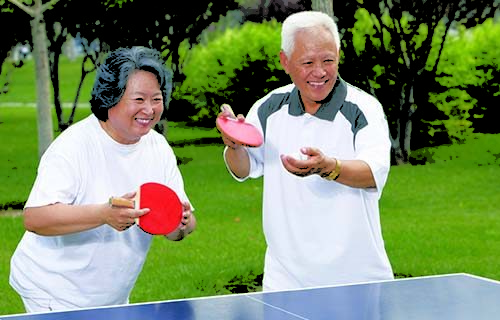
Hobbies that help you relax you change your mindset and improve your mental health
Hobbies that help you relax you change your mindset and improve your mental health
 Hobbies that help you relax you change your mindset and improve your mental health. There are so many mental health benefits associated with hobbies. The best hobbies are relaxing, bring joy, and can help prevent or treat stress, anxiety, and depression.
Hobbies that help you relax you change your mindset and improve your mental health. There are so many mental health benefits associated with hobbies. The best hobbies are relaxing, bring joy, and can help prevent or treat stress, anxiety, and depression.
Indeed, this is why hobbies are one of the most effective methods of mental exercise.
Here are several Hobbies that help you relax, alter your perspective, and enhance your mental health
Meditation
Meditation has over 100 scientifically proven mental health benefits.
As an experienced meditator, I’ve witnessed firsthand how the practice of meditation can rapidly and potently produce enjoyment, bodily and mental health, and of course, relaxation. Moreover, meditation can assist with a vast array of other issues.
Hobbies that help you relax you change your mindset and improve your mental health
Dance classes
Is it merely a coincidence that mental health disorders are increasing concurrently with the loss of dance?
Currently, more people than ever have mental health difficulties, and fewer people dance. Consider a typical 1950s black-and-white film. There were dancers in it. And they were content. Today is not the day. Currently, nobody dances and few people are actually joyful.
Anecdotal evidence is true. Nonetheless, dancing is one of the most beneficial activities for mental health. Dance has been demonstrated to aid with a variety of conditions, including happiness, Parkinson’s disease, and neurological movement abnormalities.
A neurologist from Columbia University noted in the 2008 issue of Scientific American that dance stimulates the brain and activates sensory and motor networks to generate a “pleasure double play.” (Reference: Harvard) Positron Emission Tomographic imaging (the process of capturing images of metabolic processes in the body) demonstrates that dance stimulates particular regions of the brain.
The brain regions concerned with coordination, planning, control, movement, and hand-eye coordination are stimulated by dance. And each of these benefits is enhanced by dancing. According to a 2003 research published in the New England Journal of Medicine, dancing improves brain health. The examination contrasted dancing with swimming, cycling, golf, and tennis, among other physical activities. The researchers concluded that dance is the only physical exercise that reduces the incidence of dementia (among those evaluated).
Another study conducted in 2012 by Minot State University in North Dakota demonstrated that Zumba improves emotions, raises happiness, and improves cognitive skills such as visual acuity.
Dancing brings us joy. Simple. I must now let loose. Footloose. Put away your Sunday shoes.
Hobbies that help you relax you change your mindset and improve your mental health
Acting
Acting is one of the best hobbies for mental development. However, it might also result in psychological issues.
Confused? It all depends on how seriously you take acting.
Benefits of Acting as a Hobby:
- Amateur acting is, on average, excellent.
- Joining a theater organization is an excellent opportunity to meet new people.
- Learning lines is beneficial to memory.
- When performing, we become more aware of how we move our bodies, which is wonderful for mindfulness.
- Putting on a live performance is an excellent method to overcome shyness, especially if you suffer from it like I do.
Mind-body workouts (yoga, Tai Chi, Qigong)
Today, Integrated Body Mind Training is one of the health fads with the most rapid growth. Mind-body exercises, such as yoga, Tai Chi, and Qigong, are incredibly calming and work both the body and mind. According to scientific studies, Qigong, Tai Chi, and yoga are effective treatments for anxiety, depression, and mood disorders. Tai Chi and Qigong are both excellent methods for treating sleeplessness, cognitive impairment, and possibly Parkinson’s disease, according to a preliminary study.
The 15 million yoga practitioners in North America also improve their physical and mental health, as well as their enjoyment. Yoga is excellent for weight loss, pain management, disease, strength, and suppleness. In addition, 90% of people claim they begin yoga to control stress and enhance their mood. Yoga decreases blood pressure, slows the heart rate, and enhances heart rate variability. In addition, it raises neurotransmitters and GABA levels (gamma-aminobutyric acid). GABA aids in overcoming narrow-mindedness and alleviates the symptoms of tension and anxiety. One hour of yoga raises GABA by 27 percent.
Yoga is also beneficial for depression. Twenty yoga sessions lowered aggression and boosted mood in persons with major depressive illness, according to a research study.
Walking / Hiking / Running in nature
Stanford researchers have demonstrated what we’ve all known for years: spending time in nature increases happiness and reduces the chance of depression. According to a study published in Proceedings of the National Academy of Science, spending 90 minutes in a natural setting reduces activity in the region of the brain associated with depression.
This is extremely significant news for the more than fifty percent of the world’s population who live in metropolitan areas. City inhabitants are 40 percent more likely to have mood disorders, 20 percent more likely to develop anxiety disorders, and two times more likely to develop schizophrenia.
Walking and hiking are two of the healthiest pastimes for the mind. However, running may be superior, particularly for avoiding and treating depression.
When we run, evolution assumes control. When we begin running, the reptilian brain sees this as a fight-or-flight situation (this is why we feel excited when we start running). This fight-or-flight response causes early tension. The body responds by releasing the protein Brain-derived neurotrophic factor. This protein induces calmness and attentiveness, elevating our mood.
The ability to establish goals, such as personal best times or distances, is a further benefit of running as a source of enjoyment. This provides us with a clear goal; to work for and a sense of motivation and accomplishment. Running is enhanced when done in a group, particularly a supportive group. This makes us extra happier and enhances our ties with our running partners. Walking is great too.
The benefits of walking have been scientifically demonstrated to be enormous.
Writing / Art / Photography
It is essential to engage your creative faculties. Hobbes can assist. Art, writing, and photography all provide similar benefits as pastimes. Artistic pastimes are an excellent method to exercise the creative mind. They train the mind to become more imaginative and expressive. And they are typically soothing.
In the past few decades, art-based therapies such as art therapy, theater therapy, and dance therapy have gained popularity. These therapies demonstrate that creative pursuits can improve mental health. Artistic interests are also beneficial to happiness. They increase our awareness of the world’s beauty, allow us to express ourselves, enable us to create beautiful works and teach us new abilities.
There are two approaches to enhance their quality. First, try practicing art in the real world. Sketch a still life. Photograph picturesque and calming scenes. And compose about enjoyable events. This transforms art into a practice of mindfulness.
Gardening
Numerous studies have demonstrated that gardening is an excellent activity for mental development. And little wonder. The blossoms. The clean air Makes one’s hands muddy. In the beginning, caring for plants is comparable to caring for pets. It’s an obligation. Something worthy of concern
Gardening provides us with a unique perspective. Observing all these gorgeous trees and flowers reminds us that we are but a small flower petal in the universe’s vast garden.
Group gardening improves conditions. According to research conducted in 2003, group gardening is one of the finest hobbies for persons with mental health disorders and, surprisingly, for convicts as well. Let us not forget how calming gardening can be. Whether we are simply admiring the flowers or rhythmically digging the soil, gardening is a relaxing activity. Gardening is undoubtedly one of the most beneficial activities for mental health. Let’s get our hands dirty and plant something beautiful.
Visiting the beach
On a warm day, nothing feels better than donning shorts (or a bikini) and hitting the golden sands. As soon as we get to the beach, our bodies release serotonin, which relaxes us, while the blue sea, even bluer sky, the crashing of the ocean waves, and the seemingly endless expanse of water serve as light therapy. Vitamin D consumption is also significant. On a warm day, ten minutes at the beach will provide you with the required amount. Vitamin D is essential for both physical and mental health, as it promotes bone strength and mental well-being.
The antifungal and antibacterial capabilities of seawater can eliminate illnesses (as long as the water is clean—damn industrial contaminants). The water also includes iodine, which is antibacterial and helps stimulate the thyroid gland, increasing the immune system. While the water performs its wonders, the sand exfoliates the hands, feet, and body, removing dead skin cells. And as a result of the sun’s ability to expand our skin pores, we are purified.
These are only a few of the beach’s benefits. There’s also the swimming, socializing, and connecting with Mother Nature.
Spending time at the beach is undeniably one of the healthiest and happiest hobbies we can engage in.
Cooking
Learning to cook for yourself is unrivaled. Dana Valden, the author of the inspirational must-read Zen cooking book Finding Yourself In The Kitchen, states this: “Cooking is appealing due in part to its physical nature. It demands a form of involvement that is both anchoring and practical.”
Cooking brings together plenty of cognitive processes.
There’s the inventiveness of preparing a meal the practicality of following a recipe, the mindfulness that comes from focusing on the senses (smells, sights, etc.) in the kitchen, and the satisfaction of producing something beautiful.” I do this in part because I cannot stand processed food, in part because I enjoy cooking for myself, and in large part because it is so very fulfilling.
I guess I’ve been performing culinary therapy, which is the new fad in mental health centers. Numerous mental health illnesses, including anxiety, ADHD, depression, eating disorders, and addiction, are treated through culinary therapy. The reason cooking is one of the finest hobbies for mental health isn’t only because of the healthier food and nutrition, either.
There are numerous psychological benefits associated with cooking.
- For starters, when we cook deliberately (meaning when we are intentionally fully conscious of what we’re doing) we bring ourselves back into the present now. This topic is elaborated upon in my guide to how to cook for oneself.
- Additionally, cooking for yourself increases our awareness and appreciation of food in general. Many individuals eat mindlessly, which is detrimental to both the gut and the mind. Being more receptive to food increases our enjoyment of it and our likelihood of selecting healthy and natural foods.
- Finally, there is inventiveness. Cooking is a wonderfully creative process, transforming raw ingredients into a polished meal. It is imagination that results in a delicious reward.
Cooking is one of the healthiest and happiest hobbies.
Altruism and compassion
Most people do not consider altruism and compassion to be hobbies, yet they can and definitely should be.
Compassion and generosity are two of the most beneficial qualities for mental health. When we are compassionate, we improve our relationships, raise our self-love and self-worth, and boost our confidence.
There are numerous methods to become compassionate as a hobby. Probably the best is to volunteer for a charitable organization.
Among the advantages of volunteering are:
- It increases self-esteem
- Enhanced perspective
- Is an effective method for making new acquaintances and contacts
- Puts our troubles into context
- Provides experience
- Prevents cardiovascular disease.
Aikido
Want a pastime that will transform your life? Try Aikido. Aikido is the ideal martial art for peace enthusiasts, especially those interested in Eastern philosophy. Aikido is a martial art that employs Qi (the “life energy”) to harmonize the body, mind, and spirit.
The majority of martial arts involve attacking and defeating the enemy. Aikido is the antithesis. It teaches there are no enemies. Aikido competitions are won by ending a bout without damaging the opponent. Aikido is a lovely type of exercise for those who value peace.
Hobbies that help you relax you change your mindset and improve your mental health
Choose a hobby with a purpose so that you have something else to concentrate on.
Hobbies provide us with a concentration that is unrelated to our job. For example, if you play bowling, you can aim to beat your personal best score.
Having a goal inspires you, provides you with something stress-free to aim towards (unlike work ambitions), and distracts you from your worries. This is one of the primary benefits of having a hobby.
Choose a pastime with inherent aims and one that is not tied to work. In bowling, for example, we have a personal best score to beat. This helps distract the mind from tasks.
Choose a hobby that compels you to organize your time
Another advantage of hobbies is that they teach us time management. In turn, this increases our productivity. How?
Science demonstrates that when we allow ourselves additional time to complete a task, we willfully use all of it even if we don’t need to. In other words, you will spend eight hours tying a knot if you give yourself eight hours.
Sounds confusing, doesn’t it? Parkinson’s Law of Time, proposed by the historian Cyril Northcote Parkinson, explains the situation.
Parkinson’s Law of Time holds that the time required to finish a task increases proportionally to the amount of time we devote to it. In other words, if you give yourself 100 hours to perform a task that might be completed in 10 minutes, you will take 100 hours on purpose to complete the task.
This can be taken advantage of by choosing a hobby that requires a specific amount of time. For example, completing a marathon. Marathons necessitate a certain degree of preparation. Taking these hours away from work requires us to work more efficiently.
Choose a hobby that challenges your intellect.
Brain exercise is an additional advantage of hobbies for psychological health.
Numerous individuals become mired in a repetitive habit, performing the same actions over. Workaholics, for example, are continually working, yet the majority of jobs involve a limited amount of mental tasks. A career in finance does test our math and business skills, but numerous brain regions are seldom utilized.
Activities can complement your work by engaging your brain in different ways.
Here’s how you capitalize on this:
- Find a creative activity if you work in a logical, order-based profession.
- You are a professional artist, right? Find a hobby that emphasizes logic and order if this is the case.
- Obtain a social activity if you constantly work alone.
- Find a hobby you can enjoy alone if you’re always with others.
- Choose pastimes that complement your existing lifestyle. This will provide new mental stimulation and teach you new abilities.
Choose a pastime that induces the state of flow.
Many individuals spend excessive time being passive. They are utilizing Facebook inanely. They are changing channels, etc. This type of behavior reduces self-awareness and can lead to mental health issues such as anxiety.
It is healthier to devote one’s full attention to a single activity. This provides a diversion from tension and aids in relaxation.
Choose hobbies in which you can become so absorbed that you forget your worries.
For example, running and yoga are two of the best pastimes for mental development. They inspire me to better myself. When performing any activity, I become entirely absorbed in it. They are complete chill-out parties.
Choose a pastime that facilitates social interaction.
One of the greatest advantages of pastimes is that they help us make new acquaintances. Consider acting as an example.
I began performing while attending university. I did not get along with many of my classmates. So I enrolled in extracurricular acting classes. Within a few months, I was a member of an acting group and we were collaborating on a production. Twenty individuals were in the show. Once a week, we all spent time together. Twenty new acquaintances from one activity. That is a phenomenal return on investment.
Choosing a social activity can rapidly expand your social network, which has huge mental health benefits.
Choose a passion that gives you something to talk about How often have you been in a scenario when you want to converse with someone but have nothing to say? Recreational activities alter this.
Select a pastime that decreases stress.
It is unhealthy to focus too much attention on any one thing. This tires us out, distorts our perspective, and limits our perspective on life. In addition, when we place all of our eggs in one basket, we set ourselves up for anxiety. Stress is one of the leading causes of death. Consequently, this is one of the primary reasons why hobbies are essential for good health.
Leisure activities allow us to shift our attention to something else. And to some extent, it does not matter what the pastime is as long as it distracts the mind from stress.
Choose a hobby that has nothing to do with work.
Choose an activity that is the polar opposite of your profession to find a stress-relieving pastime. Thus, you will not be reminded of work when engaging in your hobby. For instance, kayaking. One of the best pastimes for leisure and workouts is kayaking.
Choose a hobby that alleviates depression.
This is one reason why hobbies are so essential in modern society.
I will freely admit that I have spent the previous five hours in my living room. This is partially because an extreme heat warning is currently in effect. But I am also spending a day of idleness.
An idle day is OK. Too many will suffocate the spirit to death.
Leisure activities can help. One of the benefits of hobbies for mental growth is that they encourage us to leave the house. This can alleviate anxiety, tension, and sadness. Many pastimes need us to go to new locations.
Download the hobbytwin app and tell a friend for instant hobby matching:
For iPhone/iPad&iPod:









